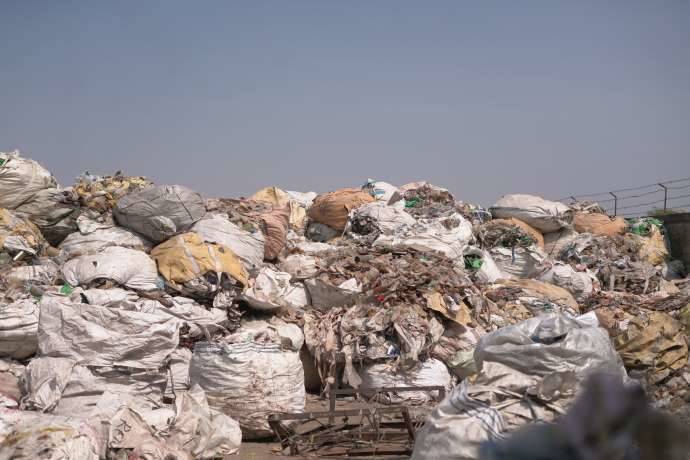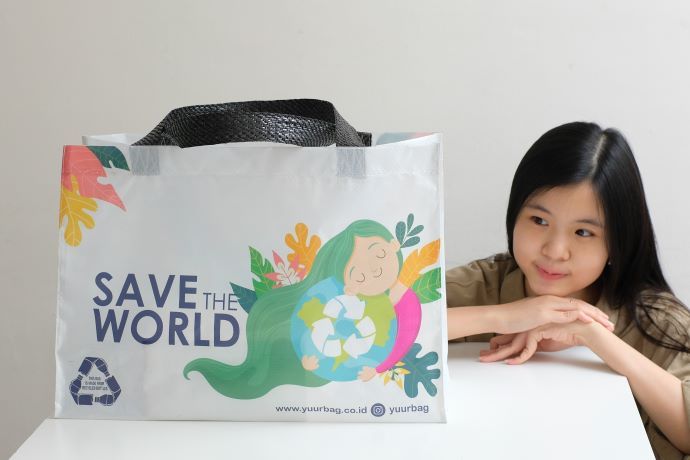Sustainable Trends in Plastic Manufacturing for 2025
Key Takeaways:
- Biodegradable plastics and recycled resin blends are gaining traction as eco-friendly alternatives that reduce dependence on virgin materials and lower carbon footprints.
- Closed-loop recycling systems and circular economy initiatives, like those implemented by Langgeng Jaya Group, are essential strategies for minimizing waste and promoting sustainable production.
- Regulatory changes in the U.S., EU, and Asia are accelerating, making compliance with recycled content mandates and single-use plastic bans a top priority for manufacturers aiming to stay competitive.
As environmental concerns and regulatory demands grow, sustainability is now a critical priority for plastic manufacturers.
By embracing innovative materials, advanced recycling technologies, and preparing for impending regulatory changes, companies can stay ahead of the curve.
This article highlights the eco-friendly alternatives, recycling innovations, anticipated regulations, and pioneering companies leading the charge in sustainable plastic manufacturing.
1. Emerging Eco-Friendly Alternatives
With rising environmental awareness, companies are increasingly turning to sustainable materials that minimize environmental impact.
Biodegradable Plastics
Biodegradable polymers, such as polylactic acid (PLA) and polyhydroxyalkanoates (PHA), offer promising solutions.
PLA, derived from corn starch, is popular in packaging and food containers. PHAs, produced by bacterial fermentation, break down more readily in natural environments and are seeing growing use in single-use items.
Example : NatureWorks, a major PLA producer, collaborates with global packaging companies to create compostable packaging.
Research from European Bioplastics indicates an annual growth rate of 20% in biodegradable plastic use, reflecting growing market adoption.
Recycled Resin Blends
Integrating post-consumer and post-industrial recycled materials is a rising trend. Blending recycled resins like HDPE, PP, and PET helps manufacturers reduce reliance on virgin plastics, significantly lowering their carbon footprint.
Also Read : Step-by-Step Guide: Switch from Virgin to Recycled Polypropylene
Example: Companies such as Coca-Cola have committed to producing bottles with up to 50% recycled content by 2030, aiming for a circular approach to packaging materials.
Studies from Plastics Today show that recycled content in plastic products could triple by 2025 as demand surges.
2. Advances in Closed-Loop Recycling Processes and Circular Economy Initiatives
Closed-loop recycling and circular economy models are transforming plastic waste management. By keeping materials in continuous use, companies can minimize waste and resource consumption.
Closed-Loop Recycling
Langgeng Jaya Group has made strides in expanding its recycling capabilities with innovative processes that handle a wide range of plastic waste, producing high-quality recycled PET resins, PP, HDPE, and LDPE.
Also Read : Recycled PET vs. Virgin PET: A Comprehensive Comparison
Langgeng Jaya Group also manufactures eco-friendly products, including FIBCs (Jumbo Bags), Geotextiles, Weedmats, Strapping and reusable Grocery Bags.
Circular Economy in Practice
Adopting circular economy models allows companies to keep resources in use longer, reducing waste.
Initiatives like reusable packaging systems and take-back programs have gained traction, with large players investing in circularity.
Example: Loop Industries collaborates with global brands like Nestlé and PepsiCo to implement reusable packaging systems.
McKinsey research highlights that circular economy practices in the plastics industry could reduce waste generation by 80% in the coming decade.
3. Anticipated Regulations in the U.S., Europe, and Asia
With governments intensifying their focus on environmental sustainability, regulatory frameworks in major regions are evolving rapidly. Staying compliant with these standards is crucial for manufacturers.
United States
The U.S. is advancing regulations like the Break Free from Plastic Pollution Act, aimed at reducing single-use plastics and promoting recycling. This legislation includes mandates on recycled content and the elimination of certain non-recyclable plastics.
Source: The Environmental Protection Agency (EPA) outlines regulations focusing on Extended Producer Responsibility (EPR), which holds manufacturers accountable for plastic waste.
Also Read : A Complete Guide to Choosing the Right FIBC for Your Business
Europe
The EU is leading with the European Green Deal, which promotes sustainable production and mandates recycling targets for plastics. By 2030, all plastic packaging within the EU must be reusable or recyclable.
Source: Reports from the European Commission state that the EU’s circular economy initiatives aim to reduce plastic waste by 50% by 2040.
Asia
Asian economies, notably China, Japan, and South Korea, are implementing aggressive recycling standards. China, for instance, has introduced stringent policies on single-use plastics and EPR, influencing global supply chains.
Source: Asian regulatory insights from GreenBiz suggest companies prepare for compliance by tracking emerging requirements in packaging and materials restrictions across Asia.
4. Case Studies on Manufacturers Leading in Sustainability
Several companies are already pioneering sustainable practices, serving as role models for the industry.
Langgeng Jaya Group
Our company is committed to circular economy principles, focusing on advanced recycling technologies that convert plastic waste into reusable raw materials and end products. Langgeng Jaya Group has actively increased the recycled content in its product lines and also applied zero waste production.
Impact: By implementing these initiatives, we contribute to a significant reduction in plastic waste and supports sustainable production goals.
Our recycling-focused strategy not only meets current market demands but also aligns with anticipated regulatory requirements on recycled content and waste reduction.
Nestlé
This global food and beverage company aims for 100% recyclable or reusable packaging by 2025, demonstrating its dedication to sustainability.
Impact: Nestlé has piloted reusable packaging programs across Europe, reducing plastic waste significantly. The company reports a projected 50% decrease in single-use packaging waste by 2030.
Conclusion
Sustainable trends in plastic manufacturing are driving the industry toward innovative, eco-friendly solutions, and regulatory compliance is increasingly important for global players.
By adopting recycled resin blends and closed-loop recycling systems, companies can align with environmental standards and stay competitive.
Preparing for regional regulations and learning from industry leaders in sustainability will position companies for success in a more environmentally-conscious market.
For those in plastic manufacturing, embracing sustainability is no longer optional—it’s a strategic imperative.
Stay tuned on Langgeng Jaya Group Official Sites to get the latest news and insight in plastic manufacturing for industry updates and expert perspectives.



